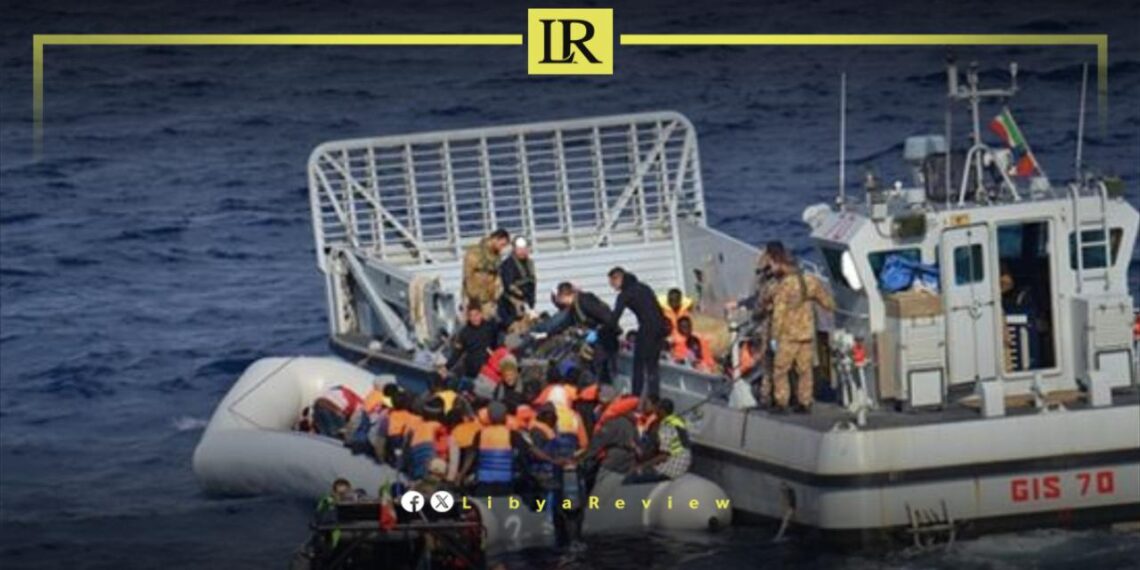The Italian authorities received an emergency ship at the port of Naples, carrying 41 irregular migrants, including three minors. The migrants were rescued in international waters off the coast of Libya.
The migrants arrived at the port of Naples on a small fibreglass boat. Local health officials, the Italian Red Cross, coast guard, and police awaited the emergency ship’s arrival at the port.
Earlier, the Chairman of the Legislative and Constitutional Committee of the House of Representatives, Ramadan Shambesh, briefed the Italian Consul in Benghazi, Francesco De Luigi, on the House’s efforts regarding the political process and the issue of illegal immigration.
Last month, reports from the non-governmental organization “Watch The Med” shed light on the alarming practice of migrant pushbacks conducted by the Libyan Coast Guard within the Maltese Search and Rescue (SAR) zone, with the full knowledge and complicity of Italian and Maltese authorities. This disturbing trend underscores the ongoing humanitarian crisis in the central Mediterranean.
Alarm Phone, a project under Watch The Med, issued a distress call for a small boat carrying 62 migrants who were facing perilous weather conditions. Instead of receiving the necessary aid, the migrants were intercepted by the Libyan Coast Guard and returned to Libya, a country notorious for its severe human rights abuses against migrants. These pushbacks are not only morally reprehensible but also illegal under international law.
Libya’s reputation for human rights violations is well-documented. Migrants returned to Libya face arbitrary detention, torture, and sexual violence, conditions that the United Nations Independent Fact-Finding Mission on Libya has stated could constitute crimes against humanity and war crimes. Despite these grave concerns, Italy continues to renew its Memorandum of Understanding with Libya, providing the Libyan Coast Guard with financial and technical support, which facilitates the interception and return of migrants attempting to flee to Europe.
Human rights organizations have consistently condemned this practice, accusing European countries of being complicit in the abuses by supporting Libyan authorities. This collaboration highlights a significant flaw in European migration policy, where efforts to manage migration flows often undermine human rights and international legal standards.
The call to action from Watch The Med and other NGOs emphasizes the urgent need for European nations to reevaluate their migration strategies and establish safe, legal pathways for migrants. Ensuring accountability and adherence to international human rights standards is crucial to protect those fleeing persecution and violence.


